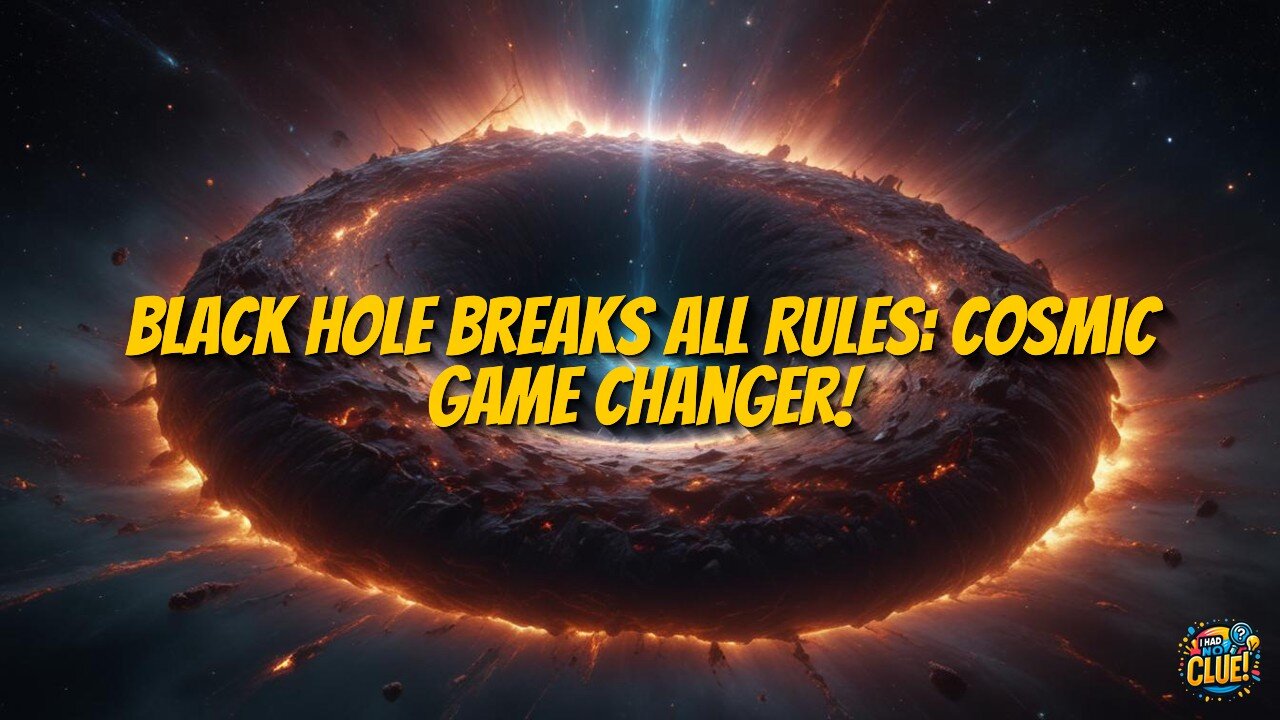Premium Only Content

Supermassive Early Black Hole Challenges Cosmic Origins
The James Webb Space Telescope has discovered an unexpectedly massive black hole in galaxy UHZ1, dating to just 400 million years after the Big Bang. This supermassive black hole, with a mass of several million suns, challenges existing formation theories as it shouldn't have had enough time to grow so large. The discovery contradicts three major formation models: stellar collapse (too small initially), direct gas cloud collapse (required rare conditions), and star cluster mergers (too time-intensive). The finding was made possible through JWST's advanced capabilities combined with X-ray data from the Chandra Observatory and gravitational lensing that magnified the distant signal. This discovery has profound implications for understanding early galaxy evolution, the relationship between black holes and their host galaxies, and cosmic reionization processes. Scientists are now planning follow-up observations to determine if this black hole represents an anomaly or a previously unknown population that could fundamentally revise our understanding of cosmic origins.
-
 1:05:07
1:05:07
Timcast
2 hours agoTrump Orders DOJ Bondi To Prosecute Democrats In Public Statement
141K90 -
 2:15:20
2:15:20
Steven Crowder
5 hours agoCharlie Kirk Conspiracies Spread Like Wildfire: What's Really Going On?
452K608 -
 LIVE
LIVE
Nerdrotic
6 hours ago $0.94 earnedStar Wars: Mandalorian and Grogu Trailer Reaction - Nerdrotic Nooner 518
432 watching -
 1:09:04
1:09:04
Rebel News
1 hour agoOstrich cull imminent, Rebel on the ground | Rebel Roundup
8.33K12 -
 1:04:57
1:04:57
The Rubin Report
3 hours agoCrowd Stunned by Trump’s Brutally Honest Remark at Charlie Kirk’s Funeral
66.9K47 -
 1:00:19
1:00:19
Grant Stinchfield
3 hours ago $1.13 earnedThe Exploitation of Charlie Kirk's Death is Very Real
14.5K26 -
 1:40:13
1:40:13
Nikko Ortiz
4 hours agoJapan's Prison System Is CRAZY...
35.6K3 -
 1:43:37
1:43:37
The Mel K Show
3 hours agoMORNINGS WITH MEL K Globalist Descend on America: Is it Time to Pull the Plug? 9-22-25
27.5K9 -
 DVR
DVR
The Shannon Joy Show
3 hours agoEpstein Cover Up - Kash Patel Has Names Of Epstein’s Pedophiles. Live Exclusive With Nick Bryant!
15.5K6 -
 LIVE
LIVE
LFA TV
18 hours agoLFA TV ALL DAY STREAM ! | MONDAY 9/22/25
2,866 watching